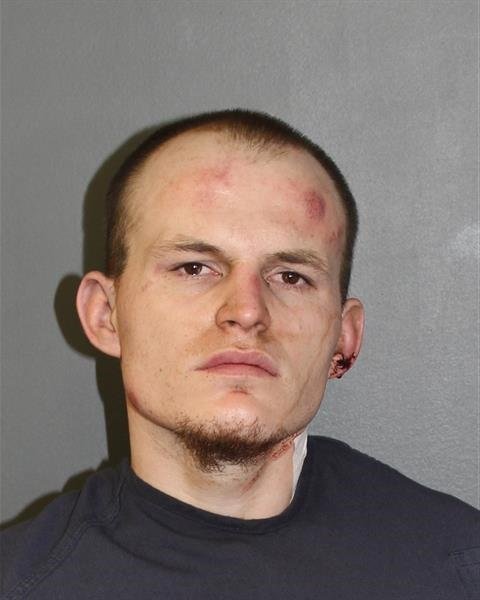Pueblo DA: 73% of homicide suspects between 2019-2022 have a prior criminal record
PUEBLO, Colo. (KRDO) -- In a crime report obtained by 13 Investigates, new data indicates several suspects in homicide and officer-involved shootings have violent criminal histories.
According to Pueblo District Attorney Jeff Chostner, 77% of all officer-involved shooting suspects were on parole or probation at one point. Out of that, 32% of suspects were on parole at the time of the shooting.

This data release follows three officer-involved shootings in Pueblo during the last week of June. Of those shootings, two were deadly. The four officers involved are all on paid administrative leave.
13 Investigates confirmed one of the suspects involved in a car chase on June 28 that ended in a shooting was on parole. According to the Department of Corrections, Bryce Ming was "actively absconding" from a warrant issued for his arrest on March 5, 2021.
He is just one of three suspects accused of stealing an ATM from a Pueblo bank before leading cops on a chase through the city on I-25.
"This report shows what we have been concerned about for quite some time. We believe that there is a premature release of individuals who have committed violent crimes in the past," DA Chostner said. "They have taken those skills to carry on their deeds."
Devon Dawson, an investigator with the Pueblo District Attorney's Office, compiled the parole numbers together. Numbers he says had him shocked.
Broken down, the data shows:
- 73% of all homicide suspects from 2019 through 2022 have a criminal record
- Of that number, 92% of suspects have violent criminal records
- 55% of all murder suspects from 2019 through 2022 were once on parole or probation at one point
- For homicide investigations, 15% of the suspects were on parole or probation at that time.
- Nearly 44% of all suspects have been charged with a crime involving a deadly weapon, charges including:
- Robbery
- Assault
- Possession of a weapon by a previous offender.
"The parole rates are astounding," Dawson said. "Quite frankly, it was eyes opening to see how many people had a history."
"Our concern is that people are being let out with some form of restraint that they are violating and it has made Pueblo a less safe place," Chostner said.
"So much of this falls at the doorstep of the state legislature. We need help," Chostner said.
Chostner tells 13 Investigates his office is not for a strict incarceration method to reduce recidivism. He says they are working through a number of experimental programs.
"We have done that through the LEAD (Law Enforcement Diversion) program, the behavioral health court, the veterans' treatment court," Chostner said. "We are working with the judiciary on a post-incarceration treatment programs."
The 10th Judicial District Attorney Chief Investigator and former Pueblo Police Chief Troy Davenport told 13 Investigates the problems with parole and probation are due to legislation passed in the last ten years.
"In 2011, the Department of Corrections discontinued taking class five and class six felonies. Parole violations are either a class five or six felonies," Davenport said. "Instead of going back to prison for a violation of their conditions, they are going to county jail for many times five days or less."
Davenport pointed to the increased caseload of parole officers in Colorado as an issue as well. He believes it is difficult for them to handle the number of parolees within DOC.
"It's got to be incredibly difficult for them to manage," Davenport said.
The 10th Judicial District Attorney's Office said crime is very much a societal issue and an economic issue. However, Chostner's Office feels like don't have much control over the laws on the books. However, they are laws he says need to be adjusted.
"We are law enforcers, not lawmakers. We are only as good as the tools that the legislature gives us to enforce the law," Chostner said.
One of the laws passed in 2019 that led to significant changes in parole was SB19-143. The law, titled Parole Changes, aimed to "alleviate prison population issues."
The law allows the Department of Corrections to "submit a list of inmates who meet a specified eligibility criteria, have a favorable parole plan, and have been assessed to be less than high risk to the parole board for a file review."
A file review, completed by the parole board, is conducted ninety days before the inmate is eligible for parole.
13 Investigates reached out to multiple legislators who were prime sponsors of SB19-143 and other crime reform bills. They include Senator Julie Gonzales of Denver, Senator Pete Lee of El Paso, and Representative Leslie Herod of Denver.
At the time of publication, we have not yet heard back from them.
